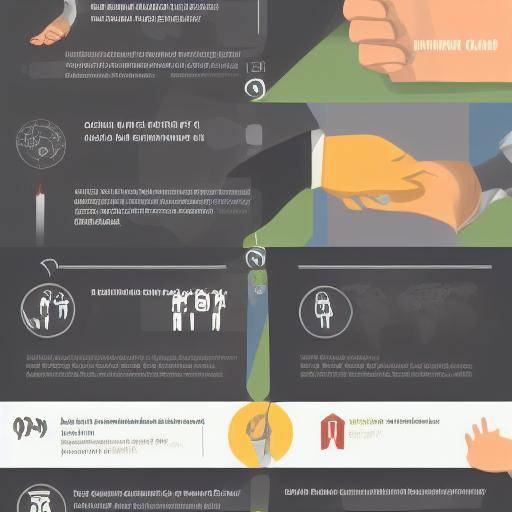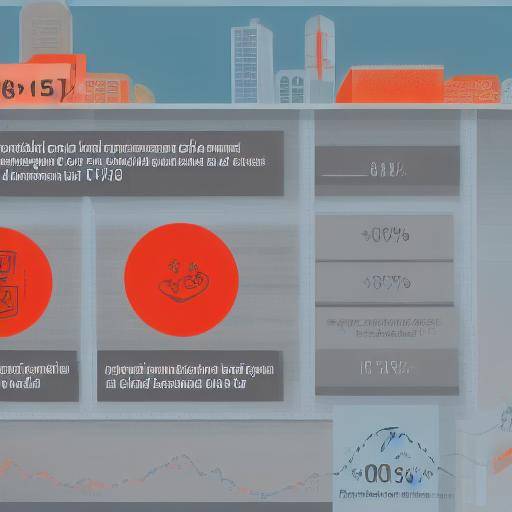
Introduction
Access to a personal loan is a financial tool that can provide flexibility and support in times of need. However, choosing an appropriate loan depends to a large extent on the financial capacity of the applicant, its evaluation of available options and strategic planning for reimbursement. In this article, we will explore the impact of income on decision-making when a personal loan is requested, highlighting the importance of financial capacity, comprehensive evaluation and strategic planning. We will discover how these fundamental factors not only affect loan applications but also their responsible management over time.
Financial capacity: Foundation for informed decision-making
Financial capacity is the cornerstone in which loan decisions rest. In assessing the impact of income on choosing a personal loan, it is crucial to understand the concept of financial capacity. This refers to an individual's real ability to undertake financial commitments, such as a loan, considering his income, expenses, existing debts and other financial obligations.
Applicants must realistically and accurately assess their financial capacity before committing to a personal loan. A thorough assessment of income, monthly expenses, savings and other potential sources of income is essential to determine the feasibility of assuming additional debt. This self-assessment provides a clear perspective on actual repayment capacity, facilitating informed decision-making by selecting the appropriate loan.
Full assessment: Considering all relevant factors
By comparing available personal loan options, an exhaustive evaluation plays a crucial role in making responsible financial decisions. Applicants should consider various factors beyond the interest rate, such as loan conditions, late payment charges and other important clauses that may affect the long-term financial burden.
In addition, the comprehensive evaluation consists of reviewing policies of different financial institutions, comparing offers, understanding requirements and restrictions, and identifying hidden clauses that may affect the applicant's experience. Taking into account carefully all relevant factors ensures a well-informed selection and minimizes the financial risks associated with personal loans.
Strategic planning: Ensuring responsible loan management
Strategic planning is essential to ensure responsible management of a personal loan. Once the loan has been acquired, intelligent planning becomes even more crucial. This involves creating a detailed budget that reflects income and expenditure, setting savings targets for loan reimbursement, and considering various scenarios to anticipate potential financial setbacks.
Strategic planning also encompasses the exploration of strategies to accelerate the payment of loans, such as additional or early payments, and the identification of opportunities to minimize the costs associated with the personal loan. These practices not only ensure effective debt management but also contribute to the maintenance of long-term sound financial health.
Conclusion
Decision-making on personal loans should be based on a careful evaluation of financial capacity, a thorough assessment of available options and strategic planning for responsible reimbursement. In considering the impact of income on choosing a personal loan, applicants can make informed decisions that not only meet their immediate financial needs, but also contribute to their long-term financial well-being.
Frequently asked questions
1. How do income influence financial capacity by choosing a personal loan?
Income is a determining factor in financial capacity when choosing a personal loan. Higher income levels provide greater loan capacity and may influence the amount of loan that can be requested. However, it is important to assess the actual income-based reimbursement capacity, taking into account other financial commitments and monthly expenditures.
2. How can I thoroughly evaluate personal loan options?
For a thorough evaluation of personal loan options, it is crucial to compare offers from different financial institutions. Examine interest rates, payment conditions, loan conditions and associated charges. Consider reimbursement policies, late payment rates and early payment clauses. This comparison will help identify the option that best suits your financial needs.
3. What aspects should I consider when strategically planning the reimbursement of a personal loan?
When strategically planning the reimbursement of a personal loan, it is essential to create a detailed budget that reflects your income and expenses. Set specific savings targets for loan reimbursement and consider making additional payments to expedite the reimbursement process. Advance possible financial setbacks and design strategies to address them.
4. How does financial capacity affect eligibility for different types of personal loans?
Financial capacity influences eligibility for different types of personal loans, as it determines the amount of loan that a person can take responsible. Lenders evaluate income-based reimbursement capacity and can adjust the loan offer accordingly. Those with strong financial capacity can access better terms and higher loan amounts.
5. How do I improve my financial capacity to choose a better personal loan?
To improve financial capacity and choose a better personal loan, it is essential to optimize income and reduce existing debts. This may include the search for additional income sources, the reorganization of your budget to save more, and the liquidation of outstanding debts to improve your income debt ratio. A stronger financial capacity will allow you to access more favorable personal loan options.
6. What is the importance of long-term planning by choosing a personal loan?
Long-term planning when choosing a personal loan is crucial to ensuring responsible debt management. It allows you to anticipate potential changes in income, evaluate the long-term impact of debt and prepare to face financial challenges. In addition, long-term planning can help minimize costs associated with the personal loan and maintain strong financial stability.
In summary, decision-making related to personal loans entails financial capacity, comprehensive assessment of options and strategic planning for reimbursement. By understanding the impact of income on these processes, applicants can make informed decisions that optimise their financial situation and ensure responsible time-consuming debt management.
This article has provided an overview of the importance of considering income in choosing a personal loan, providing detailed guidance on financial capacity assessment, comprehensive evaluation and strategic planning for loan reimbursement. By understanding these key aspects, readers will be better prepared to make informed and responsible financial decisions.






















































